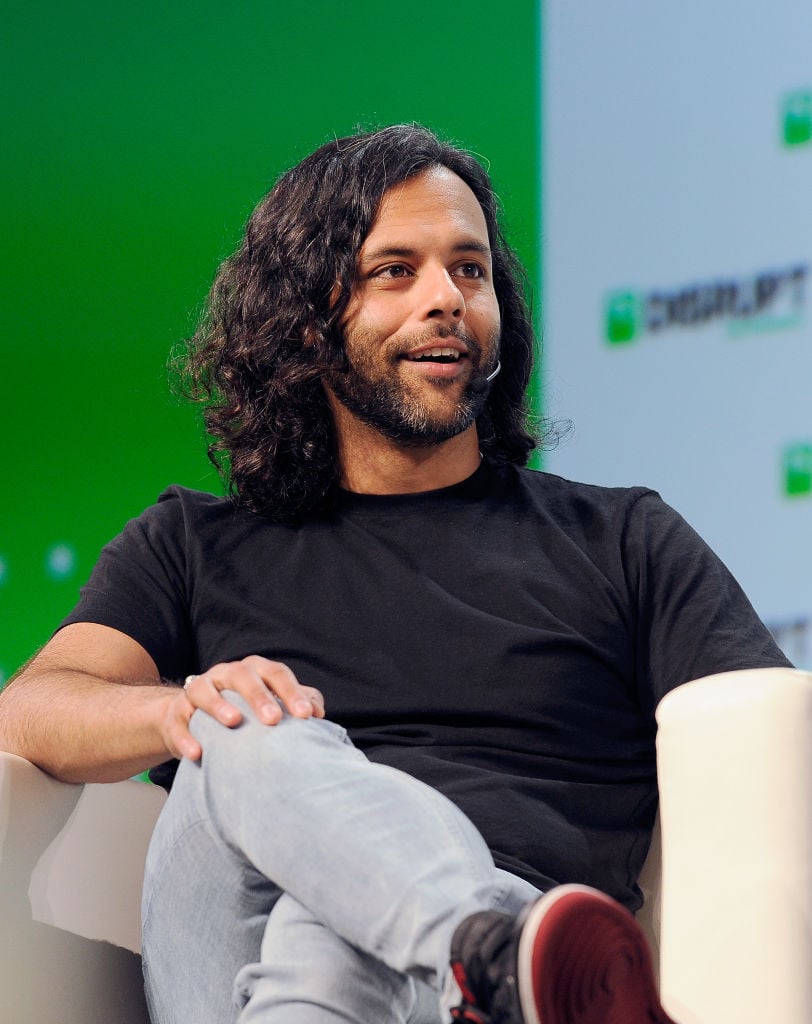What is Baiju Bhatt Net Worth?
Baiju Bhatt is an Indian-American entrepreneur with a net worth of $600 million. He is perhaps best known for co-founding the online trading company Robinhood along with Vladamir Tenev.
Born to immigrant parents from India, Bhatt attended Stanford University where Tenev was his classmate. They both eventually became billionaires thanks to Robinhood. However, Bhatt's rise to fame hasn't been without controversy. In 2021, his company came under fire as a result of the infamous Gamestop debacle, where Robinhood was accused of market manipulation by many political commentators and financial experts.
Early Life
Baiju Bhatt was born in 1984 to Indian parents who had emigrated to the United States earlier. Bhatt's family is of Gujarati descent, an Indo-Aryan ethnolinguistic group that is common in the Gujarat region of India. As a young boy, Baiju grew up in Poquoson, Virginia. After graduating from high school, he attended Stanford University and studied physics. Not satisfied with a bachelor's degree in physics, Bhatt went on to earn his master's degree in mathematics in 2008. During his first stint at Stanford, Baiju befriended Vladamir Tenev, and the pair first started to develop the idea for their online trading platform during their college days.
Career
Although Bhatt sowed the seeds for future financial success at Stanford, he wouldn't venture into entrepreneurship for some time. After leaving university, Baiju first worked for various financial institutions in New York alongside Tenev. The pair specialized in helping various companies build high-frequency trading platforms, and this further inspired them to create their own independent online trading platform.
The concept was built around the idea that professional traders and firms were paying almost zero fees to execute trades on an electronic basis. Tenev and Bhatt asked themselves why no one had created an online trading platform with zero commission fees. When they couldn't come up with an answer to this question, they decided to create their own online trading platform.
Another major source of inspiration came from the social-economic factors of that time period. Bhatt graduated from Stanford at the height of the 2008 financial collapse, which was largely created by irresponsible financial systems built on a mortgage crisis that was just waiting to happen. Baiju then witnessed the Occupy Wall Street Protests during 2011, and this inspired him to make trading more accessible and fair for the average person. The core mission of Robinhood was to make it possible for everyone to invest and start making money with the stock market. The clue is of course in the name of the company itself; Robin Hood was a legendary figure who famously robbed from the rich to give to the poor.
Robinhood was officially born in 2013, which Bhatt and Tenev acting as co-founders and equal partners. By 2016, the zero-commission stock brokerage app had a million users. That number would grow astronomically over a relatively short period of time, and by 2018 Robinhood had 3 million users. This growth was largely fueled by an ingenious referral program whereby current users were given free stocks in exchange for bringing in new users.

(Photo by Steve Jennings/Getty Images)
This progress also saw massive growth in the personal wealth of both Vladamir and Baiju, and by 2018 both men became billionaires. In addition, the valuation of the company itself rose to $6 billion. That year, Bhatt spoke at Disrupt SF 2019 and announced plans to launch an IPO (Initial Public Offering) by the next year. Despite the stock market crash of 2020, trading on the platform actually increased that year.
Also in 2020, Robinhood raised $280 million in venture funding led by Sequoia Capital, giving the company a valuation of $8.3 billion. Another round of funding came after D1 Capital Partners invested $200 million into the company. By 2021 Robinhood had over 13 million registered users. The company has grown tremendously over a period of fewer than 10 years.
Controversies
Despite its success, Robinhood has been involved with a number of controversies over the years, with Baiju Bhatt shouldering much of the responsibility as the public face of the company. Payment for order flow, security breaches, outages, and infinite leverage have all caused notable concerns.
One of the most tragic controversies faced by Bhatt was the suicide of Alexander Kearns, a 20-year-old university student. Kearns committed suicide largely because his Robinhood account showed a negative balance of $730,000, but this was later revealed to be an error in Robinhood's systems. Robinhood then faced a lawsuit from Kearns' estate.
Another well-known controversy came during the Gamestop stock fiasco of 2021. Traders on Reddit were able to push up the value of Gamestop stocks significantly by acting together as one trading block. Since many high-level investors and firms had been actively shorting this stock, some of the world's wealthiest individuals lost billions of dollars. The losses for Robinhood were also severe, and this prompted Robinhood to ban investors from trading Gamestop stock temporarily.
This move was widely criticized, and it was seen as market manipulation by many observers. Links to Robinhood and the Wall Street elite were exposed, and it was clear that Robinhood was acting on behalf of the same hedge fund traders who had shorted the Gamestop stock. This entire debacle was somewhat ironic because Robinhood was originally set up to make trading more accessible for the average person, shifting power away from massive Wall Street firms and traders. Many argued that instead of "taking from the rich and giving to the poor," Robinhood was doing the exact opposite. Robinhood was forced to raise $1 billion in emergency funding.
/2021/03/ba.jpg)
/2020/12/vlad.jpg)
/2022/12/GettyImages-1240401843.jpg)
/2020/06/evan-spiegel.jpg)
/2010/11/Martin-Zweig.jpg)
/2021/02/gabe-plotkin.png)
/2014/09/GettyImages-53205484.jpg)
/2010/03/GettyImages-146012097.jpg)
/2020/09/fabio.jpg)
/2015/08/Julio-Jones.jpg)
/2014/06/GettyImages-855956732.jpg)
/2023/10/Robert-Irwin.jpg)
/2012/07/paul.jpg)
/2009/12/wayne-gretzky.jpg)
/2020/10/Billy-Beane.jpg)
/2012/11/Bindi-Irwin-1.jpg)
/2015/08/tw.jpg)
/2021/03/ba.jpg)
/2020/12/vlad.jpg)
/2020/09/GettyImages-1222748393.jpg)
/2018/05/robin.jpg)
/2021/02/GettyImages-1027412766.jpg)
/2022/12/GettyImages-1240401843.jpg)
/2021/10/Michael-Jordan.jpg)